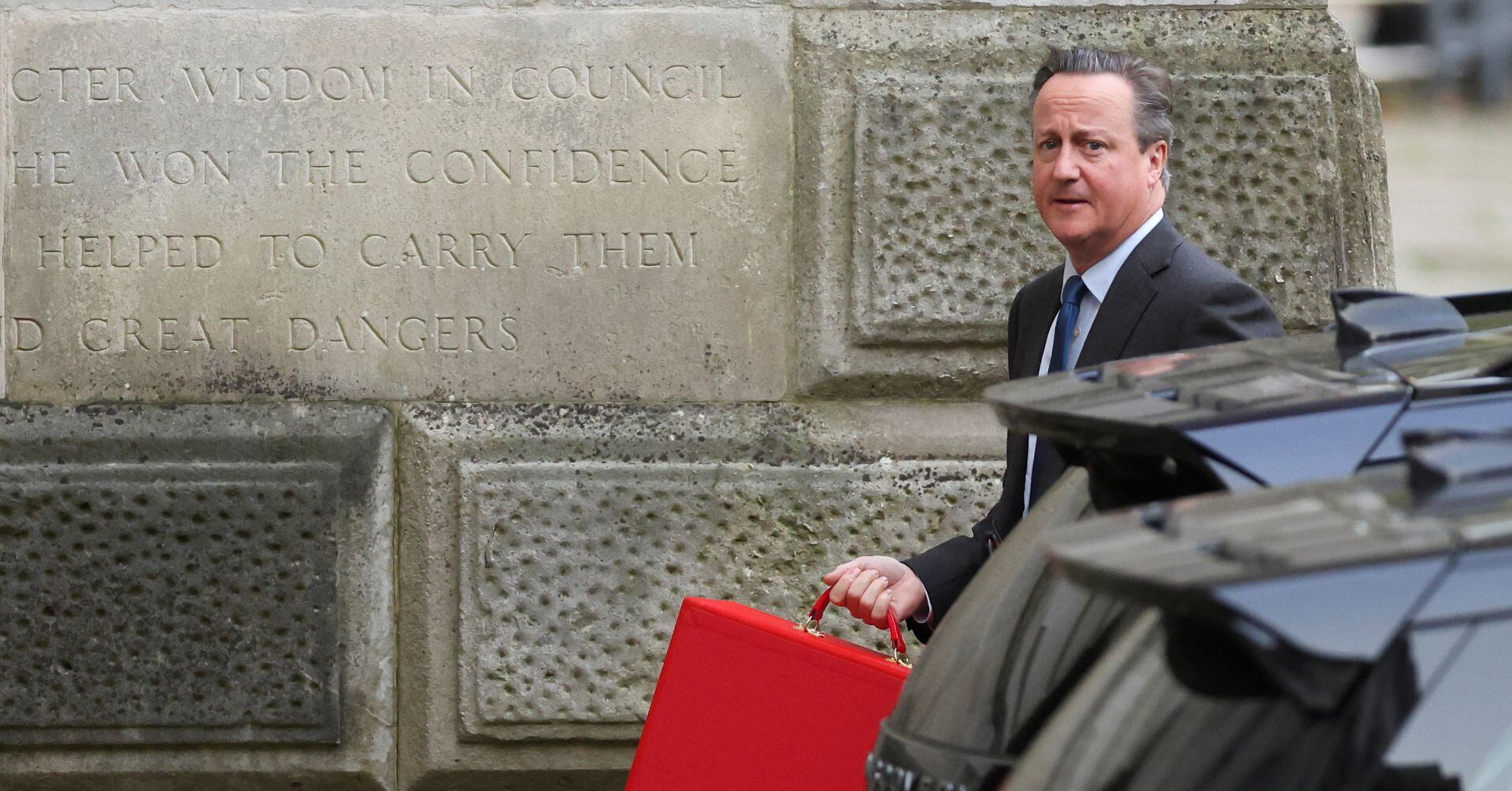Prime Minister Rishi Sunak has chosen Hampton Court, a 16th century palace renowned for its labyrinth, to host a summit during which he will try to regain the favor of investors, disoriented by the twists and turns of British politics.
As Britain seeks to regain its position as Europe’s leading foreign direct investment (FDI) destination from France, Mr Sunak will have to reassure them next week that the government will guide them and will not there will be more political impasses.
Years of political turmoil – with five prime ministers and an uninterrupted ministerial carousel since the Brexit vote in 2016 – have shaken Britain’s reputation for stability among investors.
Hoping to emulate a French event that took place in May at the lavish Palace of Versailles and in which President Emmanuel Macron secured 13 billion euros ($14.2 billion) in pledges, Mr Sunak will urge his audience of businessmen to demonstrate a similar faith in Britain.
But they may need to be persuaded.
Britain has changed course on key policies, including its corporate tax rate, its net zero timetable, a major high-speed rail project and its offshore and onshore wind turbine policies.
Some leaders say the country, which has long attracted FDI, has simply taken it for granted. Others told an official review that they had struggled to navigate the country’s “slow and cumbersome” system.
“The UK’s ability to attract capital across various sectors has declined,” said Jack Paris, director of InfraRed Capital Partners, which manages $14 billion of equity in infrastructure assets across 18 countries.
“Things like tax deductions, subsidies: they have to go hand in hand to attract private capital,” Mr. Paris told Reuters, adding that his company was cautious about investing in a heating and cooling company. energy efficiency in Great Britain, until the regulations are clearer.
UK Finance Minister Jeremy Hunt on Wednesday announced long-term tax incentives to boost business investment – key to accelerating the sluggish economy – and backed proposals to provide more support to foreign companies seeking to invest in the country.
SHOCK
Britain’s reputation among foreign investors began to weaken around 2016, when its vote to leave the European Union triggered years of uncertainty over its trade relations.
In addition to increased competition from countries such as Germany and France, the country has recently had to contend with the United States, which has offered billions of dollars in renewable energy subsidies, a plan that has prompted the EU to ease its position on state aid.
According to accounting firm EY, the total number of FDI projects in Britain fell by 6.4% to 929 last year, putting the country second in Europe, behind France (1,259 ). The country has moved to third place in terms of perceived attractiveness, behind Germany and France.
Overall business investment also declined. Britain is only 4% above its mid-2016 level, compared with 8% in Germany, 28% in the United States and 30% in France, according to a Reuters analysis of data from the OECD.
Alina Osorio, director of Fiera Infrastructure, which has assets in solar, fiber optics, waste and ferries in Britain, said her investors regularly expressed concerns about their exposure to countries, whose economy is stagnating and whose policies are changing.
Britain cannot “sit on its laurels and say that in the past everyone wanted to invest in the UK and therefore this is the way things are going to happen”, he said. she declared.
Mikhail Taver of Taver Capital, a Delaware-based global venture capital fund focused on investments in artificial intelligence, summed up Britain’s situation as: “very good logistics, good aspirations, economics medium, uncertain political risks”.
UPGRADE
Britain, drowning in debt after the COVID-19 pandemic, urgently needs to modernize its aging infrastructure and drive the digitalization and electrification of its economy.
Mr Sunak’s government and the opposition Labor Party, which holds a 20-point lead in polls ahead of elections due next year, both say they want to attract private capital.
But businesses and investors say regulators’ focus on limiting costs to taxpayers in sectors such as water, telecommunications and energy has dampened investment.
In the absence of a clear industrial strategy, Britain provided ad hoc support. This year, it proposed a financial package to the Indian group Tata to help it build a new battery factory for electric vehicles.
Richard Harrington, a former minister, was tasked by the government earlier this year with reviewing FDI policies after Britain missed out on a number of investments, including from the drugmaker AstraZeneca, which chose Ireland to set up a new factory.
Mr Harrington told Reuters that the idea that government could avoid getting involved in business was “completely dead” and that other states were “much more professional, much smoother”, with “a process much more definitive decision-making”.
Mr Sunak’s government backed his idea of a concierge service for big investors, after many told him they felt “jumped around” and bounced from one service to another, unable to obtain a decision on aid or subsidy.
UK Investment Minister Dominic Johnson said the government would be listening at the November 27 meeting to hear how it could remove the obstacles.
This article is originally published on zonebourse.com


